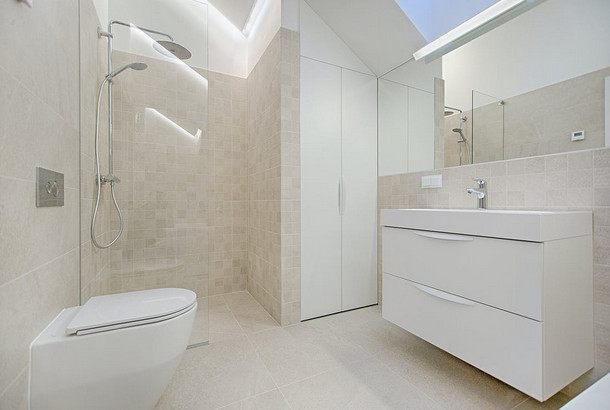Having a consistent hot water supply is reassuring as you can carry out daily tasks such as cooking, cleaning, and bathing without worrying about the water temperature. However, there may come a time when your water heater starts to act up, and you’re suddenly left without hot water or face higher energy bills.
Before you panic, look at these answers to common water heater questions. You’re better prepared to handle any issues when you have the correct information.
Contents
- 1 How Long Do Water Heaters Typically Last?
- 2 What Are the Common Water Heater Problems?
- 3 What’s the Best Water Heater?
- 4 Can You Lower the Energy Bills?
- 5 What’s the Maintenance Schedule?
- 6 Does Less Hot Water Signify Its Time to Replace the Tank?
- 7 Can You Install It Yourself?
- 8 Acquire the Knowlege Needed to Maintain a Healthy Water Heater
How Long Do Water Heaters Typically Last?
The average lifespan of a water heater is around ten years. However, this number will vary depending on the water heater you have and how well you maintain it. Also, tankless water heaters have a longer lifespan than traditional tank water heaters.
To prolong your unit’s life, understand what maintenance is required and follow a regular schedule. Also, resolve issues quickly to prevent further damage. A water heater replacement is the best option when all fails or ends its lifespan.
Although you’ll spend more upfront, you’ll avoid the hassle and stress of unexpected repairs. You’ll also avoid the inconveniences of having no hot water and enjoy lower energy bills in the long run.
What Are the Common Water Heater Problems?
Common water heater problems include lack of hot water, strange noises coming from the unit, water that’s too hot or not hot enough, and leaks. These issues are caused by various factors such as a faulty heating element, sediment buildup, or a problem with the thermostat. If you have any of these issues, it’s best to call a professional for help as they can quickly diagnose the problem and offer the best solution.
What’s the Best Water Heater?
The best water heater to choose from depends on your needs and preferences. However, tankless water heaters are generally a good choice as they’re energy-efficient and have a longer lifespan than traditional tank water heaters.
However, they’re more costly to install and maintain. Electric-powered water heaters are more energy-efficient, but gas is cheaper than electricity.
If you’re not sure which type of water heater is best for you, consult with a professional to learn more about your options. Available space, ease of installation, and budget are important factors when selecting a water heater.
Can You Lower the Energy Bills?
If your energy bills steadily increase, it’s likely due to your water heater. However, there are ways to lower your costs. One way is to insulate your water heater tank and pipes. Doing so will keep the heat in, allowing your unit to operate more efficiently.
You can also lower the temperature of your water heater to around 120 degrees Fahrenheit. Finally, use water efficiently, and only run the dishwasher and washing machine when full. Setting the temperature at 125 degrees Fahrenheit also prevents residue build-up and overheating.
What’s the Maintenance Schedule?
A water heater requires very little maintenance, but here are a few things to keep it running smoothly. First, check the anode rod every few years and replace it if necessary. The rod protects the interior of your tank from corrosion. Next, drain the unit to remove any sediment that’s accumulated.
Finally, keep an eye out for any leaks and have them repaired immediately. Letting an expert inspect the system annually prevents issues and prolongs the lifespan of your water heater.
Does Less Hot Water Signify Its Time to Replace the Tank?
Less hot water from the water heater doesn’t necessarily mean it’s time for a replacement. It could just be that the unit needs flushing to remove any sediment build-up. Other times, the issue could be the element or thermostat.
Fixing these parts is usually much cheaper than replacing the entire unit. However, if your water heater is more than ten years old, it may be time for a replacement as the tank could start to rust and break down.
Can You Install It Yourself?
Installing a water heater is a complex process that requires plumbing and electrical systems knowledge. If you don’t have the necessary experience, it’s best to hire a professional. They will do the job right and select the best unit for your needs and budget.
Additionally, most manufacturers void the warranty if the unit isn’t installed by a professional. Therefore, it’s essential to consider the long-term costs when deciding whether to do it yourself or hire someone.
Acquire the Knowlege Needed to Maintain a Healthy Water Heater
These answers will help you make informed decisions about your home’s hot water needs. You’re better able to maintain a healthy and efficient system by staying on top of things and being proactive about maintenance.
